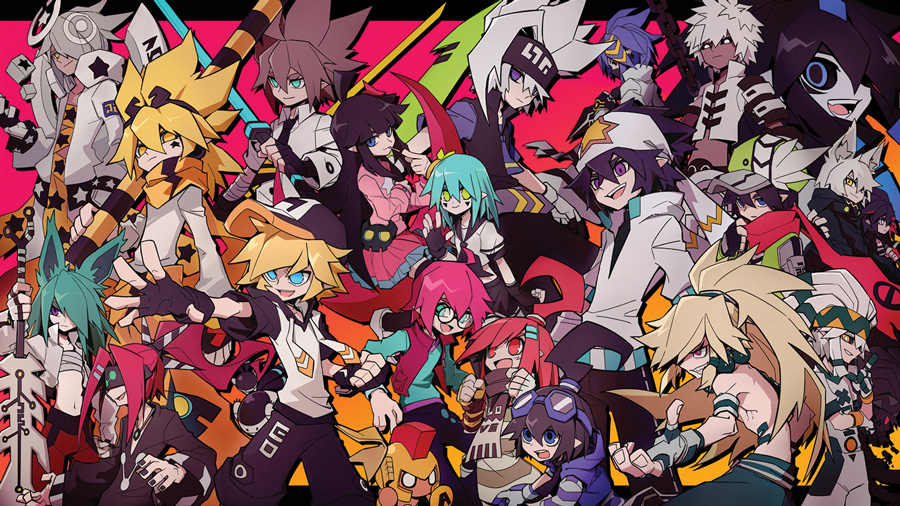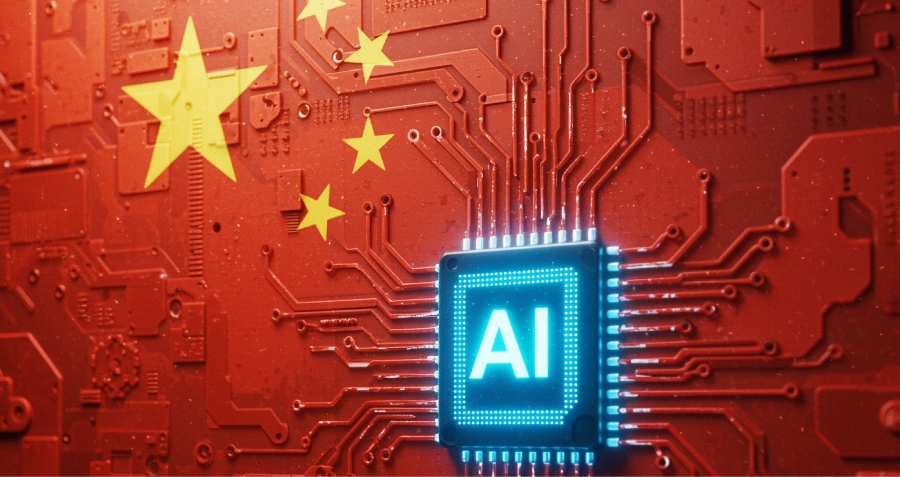entertAInment
AI in some form or another has always been a necessary element of making computer games, and when I started out as the first game developer in China in 1994, I was already employing it even in a simplistic form. But today, we’re seeing something of an AI watershed moment, not just in the entertainment industry, but across business as a whole.
The last few years have also seen increasing discussion of the metaverse and how this will shape the future of digital entertainment. We’re still in the early stages of metaverse development and there are varying predictions on exactly what form it will take, ranging from multiple individual worlds with limited interaction, to fully-fledged all-encompassing universes.
The explosion of interest in and adoption of AI tools in recent months is also adding another dimension to the development of the digital entertainment industry as a whole. Given my history of involvement in gaming business development and now as the CEO of an animation company, I have seen the development of both of these phenomena over the past 30 years, and foresee even greater changes to come.
AI in particular, is going to permeate almost every aspect of our digital lives, affecting the way we work and create, and spend our leisure time. There are many reasons why I am optimistic for the future, but there are obviously also some concerns.
MultiMetaverse
What constitutes a metaverse varies depending on how wide a view you wish to take. At the lowest level, you can consider an individual game as a metaverse, with its characters, storyline and universe as a stand-alone product. Above that, there are some games that include mixed IPs such as the fighting game Super Smash Bros. which includes characters from Mario, Pokémon and Zelda, amongst many others.
Looking wider, there are products like Decentraland, Roblox or The Sandbox, which offer a central world that you can log into, with multiple different games and activities available within this world. Beyond that, you could also even argue that Amazon Cloud is its own metaverse, given that it is a centralized storage space for a huge amount of content.
For many people, including Mark Zuckerberg at Meta, a vision of the future metaverse falls along the lines of Decentraland and is akin to the world depicted in the film Ready Player One. Put on a VR headset and other accouterments to provide a more immersive experience, and log into a central digital world, from which you can go anywhere and do anything. You have a single avatar, and that avatar constitutes your presence in the ever-expanding metaverse.
I, however, believe it will remain closer to the simpler definition that I described above, and there will be a great number of metaverses—that is why I named my company MultiMetaverse—with each providing a separate world in which you can enjoy various experiences, with little or no overlap. An example would be a gamer deciding on Monday to play a game where their character is a dog in a world of dogs, but the next day playing a game where they are a Transformer in the Transformers’ universe. The worlds are unrelated, and users don’t consider other possible worlds until they log off from the first. Progress made in one metaverse does not affect the other.
To draw a comparison with the real world, we can imagine that a person inhabits several metaverses, one through their job and their colleagues. But when that same person leaves their job, they may take part in sports as part of their downtime and for the most part that would be in another metaverse with a mostly separate group of people. There will also be several other parts of their lives, such as family and friend groups, that constitute further metaverses. There may be some overlap between the worlds, but for the most part, they are largely separate and self-contained.
A major reason for this prediction relates to intellectual property (IP) ownership, which will play a major role in determining which worlds can interact with each other. At the moment, only Disney would be in a position to collide fictional worlds in a meaningful way, but they are a unique example.
Each different IP has its own lore and gameplay style and to combine more than one, there are a number of integrity issues to be addressed. The reason that a game such as Super Smash Bros. can exist with multiple unique IPs is that there is very little lore-based gameplay in fighting games. The main element of the game is to simply beat your opponents. But other game structures don’t have this luxury, and this will stop the intertwining of each separate metaverse in a meaningful way.
AI
Right from the very beginning of game development you needed to create some form of AI to make the environment and non-player controlled (NPC) characters work. It used to be a much simpler form of AI than we have today—using a fixed knowledge base and simple decision tree to ascertain outcomes—but it was AI nonetheless.
In-game uses of AI have come a long way since then, and in some areas we now have computers that can now mimic the human brain, depending on how they’ve been programmed, and display a good level of IQ. ChatGPT is an excellent recent example, offering people a glimpse into the future possibilities of AI.
But one thing these tools cannot yet do is develop a level of emotional intelligence or EQ, and it is the subtleties that come from a high EQ level that are required to improve the digital content we have today. Users care about stories and how immersive a world is, so subtle tweaks of NPC behaviour in games using the same underlying software can decide whether a game is a successful one and whether it can make a lot of money or be a total failure. It’s mostly based on the human psychology model and is something that AI cannot do yet.
When it comes to the actual production process of digital entertainment products, many game producers have for a long time been using tools such as Houdini—which helps with AI generation of environments—but we are starting to see more changes with the increased availability of AI tools. Things like Midjourney are already being used for the creation of sketches and concept art, and some aspects of voice-over work can also be AI generated, although there are again some EQ limitations there.
The pace of adoption is still slow, however, and the key changes will only come in a few years’ time when companies that create the major engines that games run on, such as Epic and Unity, start properly incorporating AI tools into their development software. For the creators of AI products, such as Microsoft and OpenAI, specific industry applications are too small for them to concentrate on, and small companies will not have the capability to add AI into their gaming production due to cost and knowledge limitations.
Once these tools are included by Unity and Epic, game production will go through a whole host of changes. The costs of creating a new product will drop dramatically and we will likely see individual creators being able to do at home what entire studios today employ hundreds of people to do. A single person being able to create something like the movie Avatar in six months will be a game changer and will result in a flood of new, high-quality content.
But this also means the number of people employed by large studios will be massively reduced. I am in two minds about this. As a boss, I am happy because my costs will drop and I can create better and higher-quality content for less, but I also have to lay people off. How are they going to make a living?
One possibility is, that these people will be able to create at home and they will not be limited to creating another person’s vision. I currently employ around 300 people in my animation studio, many of whom have incredible ideas, but realistically we can only greenlight maybe two of those ideas a year. People enter this industry to be creative and with the help of AI tools, they won’t have to pray to a boss for funding anymore.
Plans for the future
With these changes in the pipeline, many companies, including my own, are trying to work out how to tackle the future. Our approach will be to focus on the acquisition of different IPs from around the world. The mobile games that we produce using our animated characters as interest drivers are wide-ranging, we can find the best model to fit different IPs to produce a profitable and fun game.
One of the benefits of the China market is that it is quite large, so in order to be somewhat successful you only need to corner a small percentage of the market. In China, our main show Aotu World has a fan base of around 30-50 million people and can offer us a solid and consistent income.
Markets in other countries aren’t so large, but there are still opportunities to be found with localized IP that is already embedded in that country’s zeitgeist. Large entertainment providers such as Disney or Netflix are mostly interested in IPs that can be disseminated internationally, rather than content that only has a limited reach within one country. There are a very limited number of studios across the world who know how to make profitable mobile games, most of these game studios only do subcontracting work on larger PC/Console games for big Western gaming companies. Because of this, they are unable to monetize their local IPs effectively.
Our plan is to take localized IPs from around the world and use our China team to develop mobile games for those markets. We already have a number of different game modes, ready to be retrofitted with the characters and plots from the purchased IPs. By using IP that is recognizable in a certain territory, we are setting ourselves apart from the vast swathes of original new content that will be created by individual developers and companies using AI tools in the future.
For those that aren’t in the position to purchase IP outright as we are going to, licensing will be the only way. But the point is that, without an obvious emotional connection to your content, it will be hard to set your product apart from the ever-expanding crowd.
What’s next?
Looking to the future of digital entertainment in general, I foresee the large platforms utilizing AI-based distribution methods becoming even more of a monopoly. TikTok for example, will see a massive wave of new content which will be ever-better targeted at your own tastes, which means you will be more likely to use it. This also means that it is increasingly unlikely for you to see the same content as other people, meaning that IP will become more scattered rather than more centralized. Big platforms are likely to become increasingly powerful, and I would expect content creators to lose some of their power in the market. So, owning already established famous IPs will become more and more valuable.
Alex Xu is the Director and CEO of MultiMetaverse, an international animation and entertainment company. He also has over 29 years of experience working in the gaming industry, both in China and internationally.





















